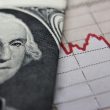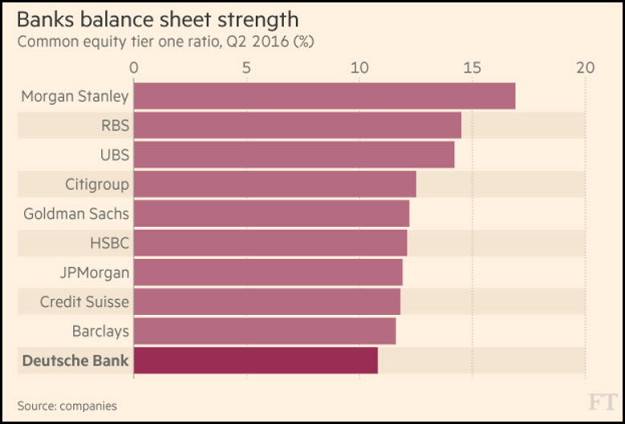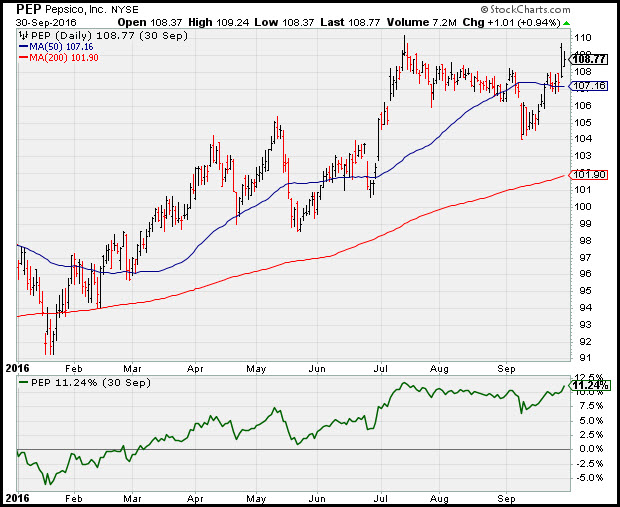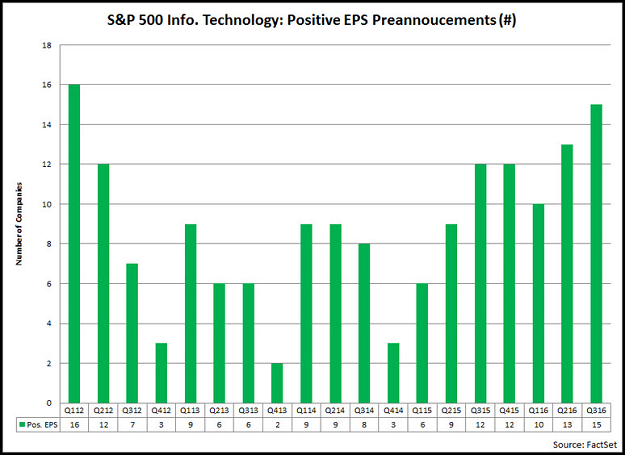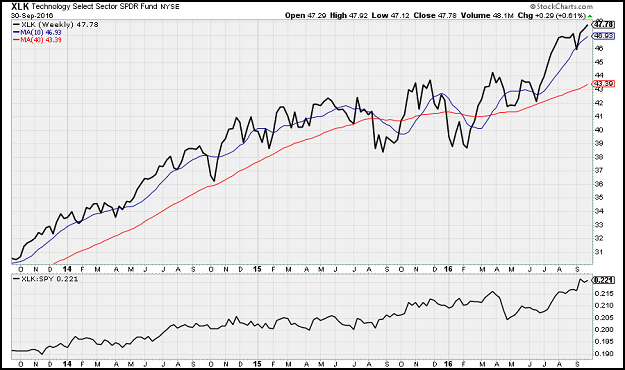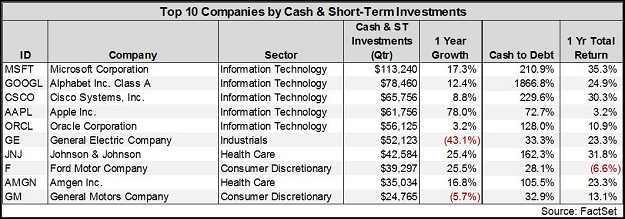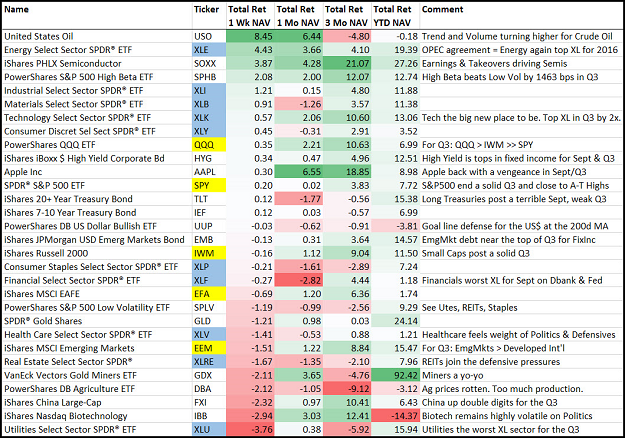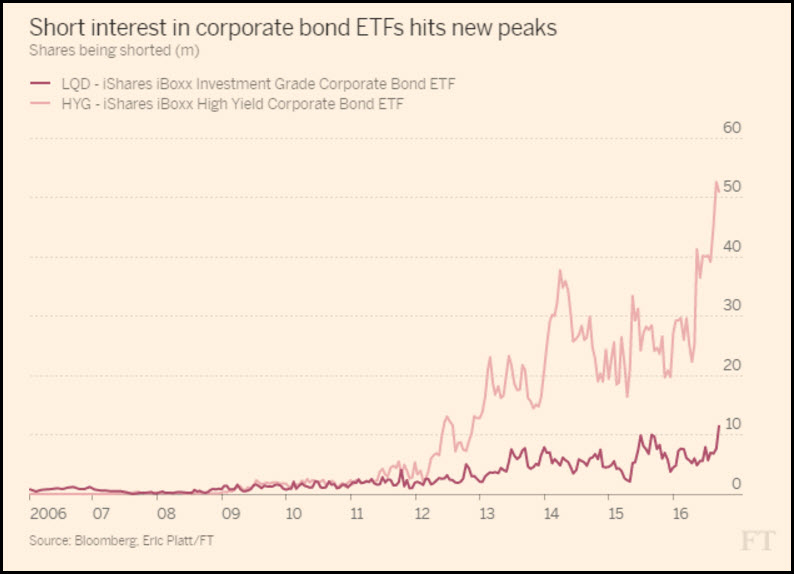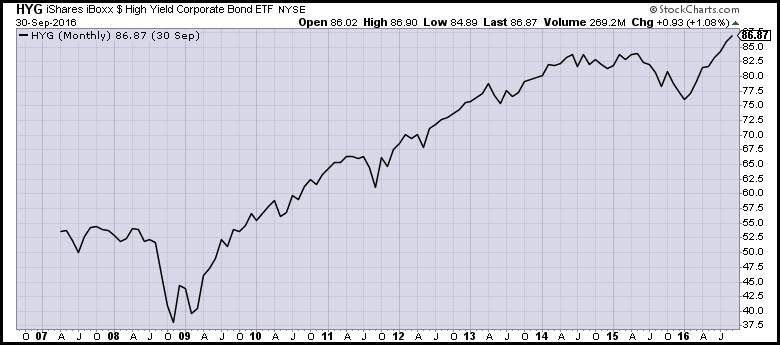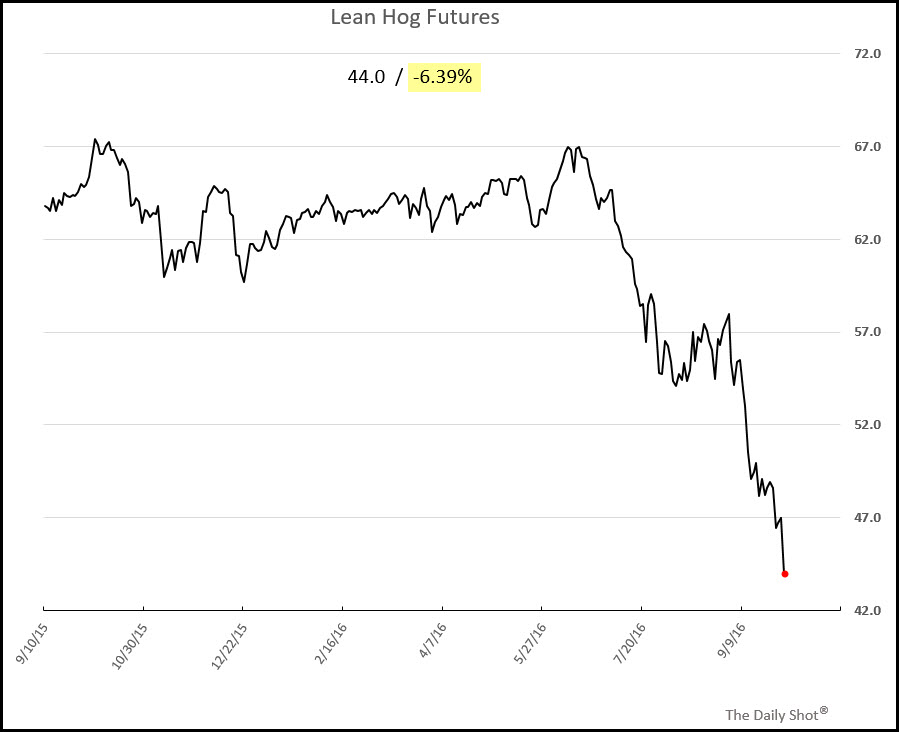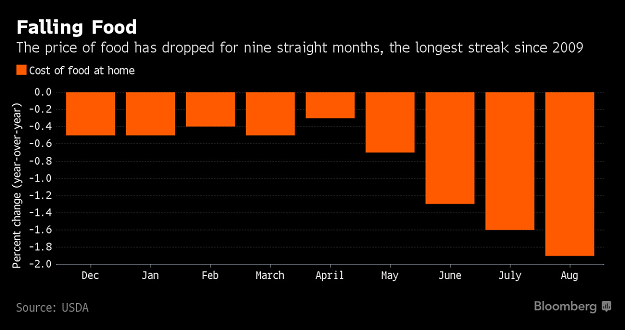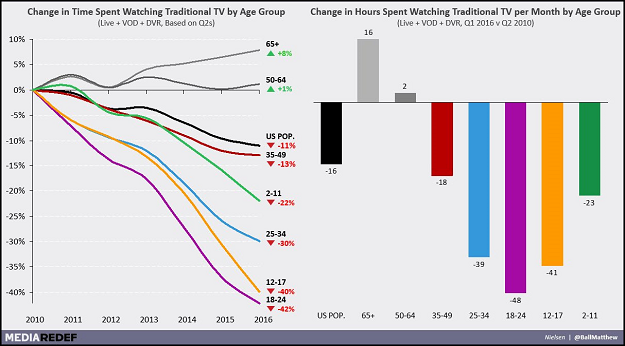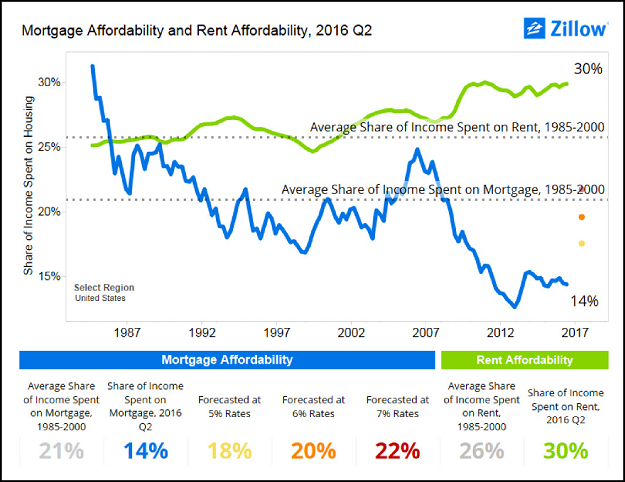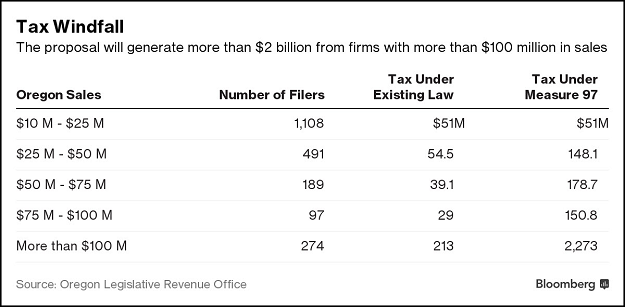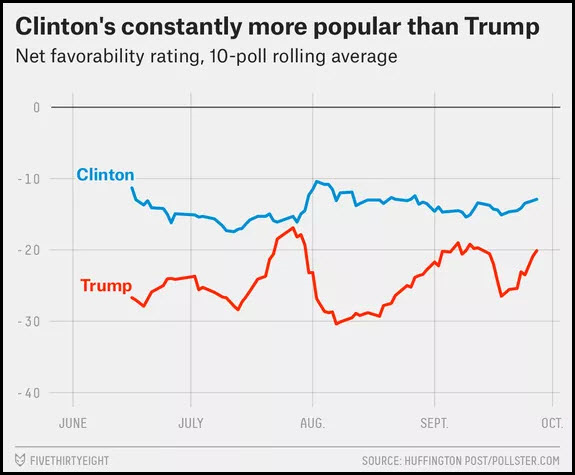by Blaine Rollins, 361 Capital
Movement everywhere…
That was an incredibly busy last week of the quarter. DeutscheBank worries, the OPEC agreement, the first Presidential debate, Wells Fargo on Capitol Hill, Q3 earnings preannouncements, M&A rumors in semis and internet. One minute you were feeling good about the market, the next minute things got ugly. Even the month and quarter-end window dressers needed last minute window dressing. Over in hedge fund land, some top managers admitted difficulties with the current environment by announcing fee cuts or even closing their doors. Most U.S. Mutual Funds finished the month and quarter with gains but it was accompanied by stress and volatility. The good news is that October is here. While volatility many not decline, at least managers and investors are heading into the seasonally friendly time of the year. Good luck navigating the traffic.
Biggest news of the week was the change of mind by the Saudi’s to cut production. Now will OPEC fall in line?
Saudi Arabia has ended its flirtation with free oil markets.
It took the kingdom’s new oil minister, Khalid Al-Falih, just six months to blink, ending the country’s two-year policy of pump-at-will.
The decision at this week’s meeting of the Organization of Petroleum Exporting Countries in Algiers to cut production was necessitated by Saudi Arabia’s tattered finances. The kingdom has the highest budget deficit among the world’s 20 biggest economies, may delay its first international bond issue and now faces fresh legal uncertainty after the U.S. Congress voted Wednesday to allow Americans to sue the country for its involvement in 9/11.
Saudi Arabia had to change its course as its country’s finances were getting sandblasted…
Saudi Arabia has unveiled pay cuts for government employees for the first time, as it attempts to further rein in spending at a time of low oil prices.
A royal decree said ministers’ salaries would be reduced by 20%, and housing and car allowances for members of the advisory Shura Council cut by 15%.
Lower-ranking civil servants will see wage increases suspended, and overtime payments and annual leave capped.
About two-thirds of working Saudis are employed in the public sector.
Their salaries and allowances accounted for 45% of government spending in 2015, or $128bn (£99bn), and contributed to a record budget deficit of $98bn.
(BBC)
DeutscheBank also moved front and center last week. The large U.S. fine has increased worries about its capital ratios and large derivatives book. Here is the outcome that the market needs right now to settle down…
Best settlement scenario
Achieving a settlement with the DoJ is Mr Cryan’s top priority, and he has been spending most of his time recently in the US trying to bring talks swiftly to a close. If Deutsche Bank could settle the case for close to its $3bn-$5bn target and complete the sale of its $4bn minority stake in China’s Huaxia Bank, it could put a stop to swirling speculation about its weak capital position. This should trigger a rebound in its share price, which has slumped to three-decade lows, and shore up client confidence in its financial position. The bank could then present investors with a beefed up strategy to rebuild profitability and strengthen its balance sheet when it presents quarterly results in late October. Crisis over.
As the end of the quarter drew near, some companies decided to show us their upside early. Last week was Pepsi’s turn…
PEPSICO 3Q CORE EPS $1.40, EST. $1.32; BOOSTS FORECAST
If you are looking for the sector with the most preannouncements this quarter, turn to Technology…
What is surprising, however, is the unusually high number of companies in the Information Technology sector issuing positive EPS guidance for Q3. The number of companies issuing positive EPS guidance in the Information Technology sector is 15, which is above the number for Q2 2016 (13) and above the five-year average (9) for the sector.
If the final number of companies issuing positive EPS guidance in the Information Technology sector is 15, it will mark the highest number for this sector since Q1 2012 (16). The current record high (since 2006) is 24, which occurred in Q3 2010.
(Factset)
As Technology earnings surprise to the upside, their stocks are following to make them the best sector performers for the Q3…
Another reason investors want Tech stocks right now is that big, safe cash cushion…
(@Factset)
Here is the deep dive into the Sector and Asset Classes for the Q3. Click to enlarge the pic for the notes.
(prices as of 9/30/16)
Investors were betting against corporate debt in record numbers last month…
Bets that corporate bond prices will slide surged in the build-up to this month’s Federal Reserve meeting, with short interest in the largest corporate bond exchange traded fund hitting a record level.
The bearish signal is a measure of investor sales of shares that they do not hold, in a wager that the bond price will fall and they can repurchase it later at a lower price.
The increase in short interest could indicate that investors were seeking to hedge their exposure to corporate credit as they buy the underlying cash bonds, several fund managers said. It could also be a harbinger that investors expect markets to fall after a bumper rally this year.
US junk-rated corporate paper has advanced 14.5 per cent this year, outpacing the 7.8 per cent total return of the benchmark S&P 500 stock index. By contrast, high-quality company bonds have returned 9.5 per cent.
…this explains why Junk Bonds outperformed and finished at record highs…
Meanwhile the Agriculture asset class stunk it up in the Q3. Here is an evaporating Hog chart. Good for your bacon consumption.
Deflation in food goes beyond bacon. Prices are going lower in every aisle of your grocery store…
In a startling development, almost unheard of outside a recession, food prices have fallen for nine straight months in the U.S. It’s the longest streak of food deflation since 1960 — with the exception of 2009, when the financial crisis was winding down. Analysts credit low oil and grain prices, as well as cutthroat competition from discounters. Consumers are winning out; grocery chains, not so much. Their margins and, in some cases, their stock prices, are taking a hit.
On Wells Fargo, even the Associated Press took up a pen to write that you need to check your accounts and consider whether or not to remain a customer…
Attention, Wells Fargo customers: It’s time to sit down and make sure no funny business went on with your accounts.
Wells Fargo, which has been fined $185 million by regulators who said bank employees opened millions of unauthorized accounts to meet sales goals, has promised to contact all customers and invite them to review their accounts.
But don’t wait around for a phone call.
“You must be proactive,” said Pamela Banks, the senior policy counsel at the nonprofit advocate Consumers Union. That means going through several years of statements, credit reports and accounts on your own.
Pro football is very important to television networks…
…meanwhile, the television box is struggling to find anyone under 50 to turn it on…
@ballmatthew: Updated for Q2: The decline of TV is not slowing down. Millennials + Gen Z down 40% in 6 years. How much longer until the bubble bursts?
Great chart: Rent affordability versus mortgage affordability…
(Business Insider/Zillow)
I love Oregon and know that they have a significant pension shortfall, but a 2.5% sales tax on all Oregon corporate revenues is not the answer.
This will only cause a raising of prices and cutting of wages for all Oregon citizens. Shareholders in Oregon-based companies will not stand by and absorb a $3 billion hit to their earnings; and in the case of any publicly regulated utility, they can’t. It must be passed through to the consumer so all electric and gas bills immediately rise thereby hurting the citizens that can least afford it.
Oregon voters in November will consider the largest U.S. corporate tax increase in this millennium, a decision that may make the state a proving ground for the liberal belief that businesses are getting a free ride.
The measure would levy a 2.5 percent tax on in-state gross sales of more than $25 million. It would swell Oregon’s budget 33 percent and steer $3 billion of corporate earnings annually toward schools, healthcare and the elderly, making it something of a Pacific Northwest welfare state.
Speaking of pension fund difficulties, Howard Marks thinks that fiduciaries should plan on 5.5% annual gains, not 7-8%…
Institutions face returns that will be lower than historical gains and in some cases less than what they need to meet their liabilities, according to Oaktree Capital Group LLC’s Howard Marks.
Annualized gains of 5.5 percent “strikes me as the most reasonable expectation,” Marks said Wednesday at the Bloomberg Markets Most Influential Summit in New York. “It’s a big problem because most endowments need 8 percent, charities need 8 percent, and pension funds need about 7.5 percent.”
Marks said high-yield bonds are expected to return about 5.5 percent, stocks 5 percent to 6 percent, Treasuries 2 percent and high-grade corporate bonds 3 percent. Alternative assets such as private equity and real estate would yield higher profits, the billionaire investor said. In a balanced portfolio, that mix would work out to about 5.5 percent.
Luckily, the Presidential election is only one month away…
For the first time in history, the election looks to be coming down not to whom is most liked, but instead to whom is least hated. Expect the spin cycle of the two camps to nearly break the washing machine belt in the next four weeks.
Finally, George Washington. Well liked with high net favorable ratings…
(Gilbert Stuart – George Washington – Brooklyn Museum)
Copyright © 361 Capital




